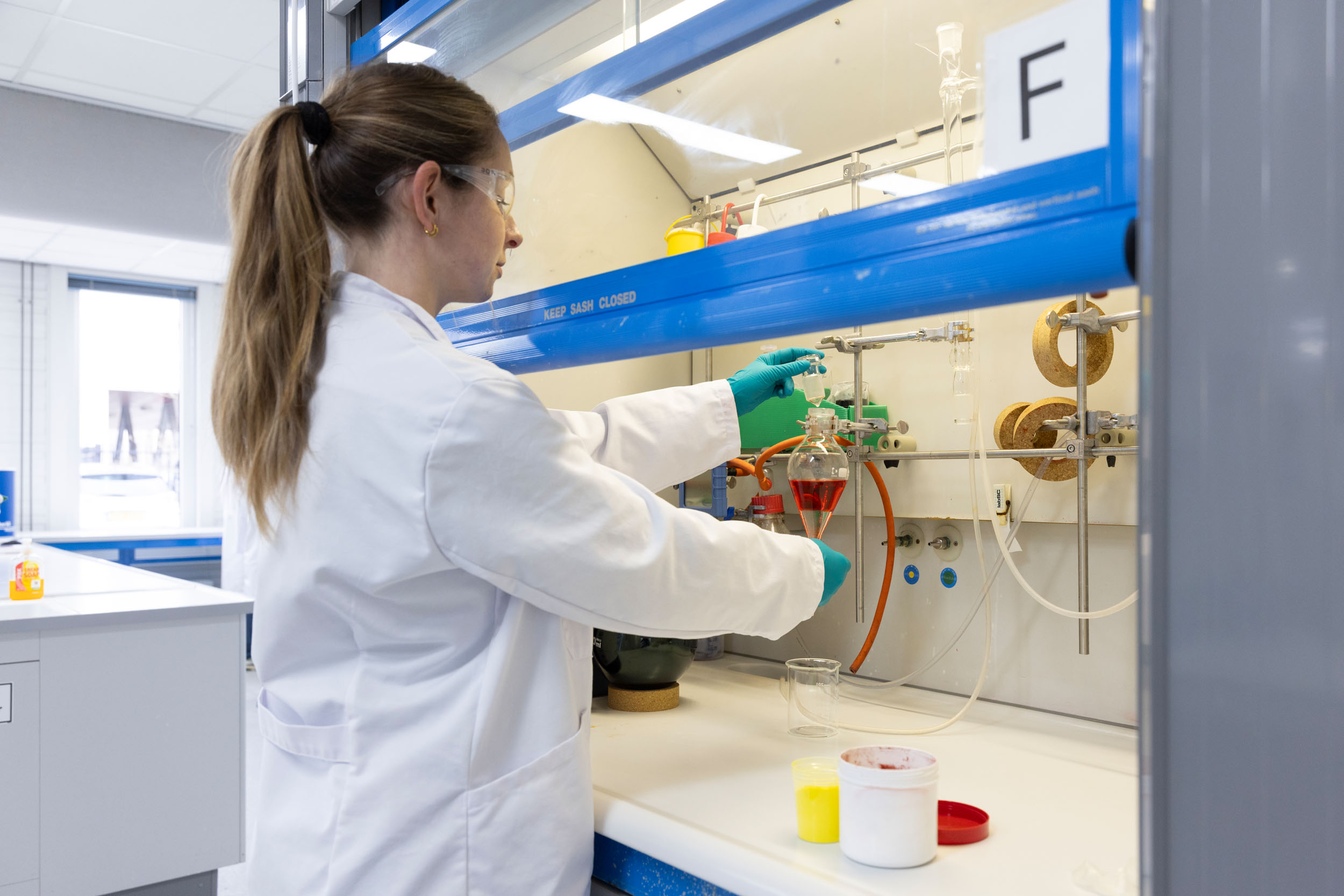Assignment Description
At the Center of Expertise MNEXT (Material and Energy Transition) of Avans Hogeschool, applied research is carried out to support the transition to a biobased and circular economy. Within MNEXT, the research group Biobased Building Blocks & Products (BBB&P) specializes in microbial fermentation, biobased compound extraction, and the development of sustainable production processes using fungi, yeasts, and bacteria.
As an intern, you will join the FuntureTex project – a collaborative research initiative exploring the use of fungal colorants as a sustainable alternative to synthetic dyes in the textile industry. The focus of your assignment will be on the fermentation and processing of fungal pigments, which will later be used by the project partners in textile dope dyeing applications.
You will contribute to the development and optimization of the fermentation process to produce fungal pigments and assist with downstream processing.
Your main tasks will include:
- Growing fungal cultures under defined conditions;
- Monitoring fermentation parameters (pH, temperature, color development, yield);
- Processing fungal biomass to obtain colorant products (e.g., heat-dried powders, extracts);
- Documenting experimental conditions and results;
- Supporting pigment characterization in collaboration with the research team;
- Contributing to discussions on scaling up and application potential.
Working environment
This internship offers hands-on experience in fermentation and sustainability-focused bioprocessing, while contributing to the development of eco-friendly alternatives for the textile sector.
Working language: we have a multidisciplinary and international team. Therefore, the language is English. Some of the researchers also speak Dutch.
Starting Date & Compensation
- The length of the internship graduation assignment is approximately 20 weeks.
- The student will get an internship fee of €350, – per month.




